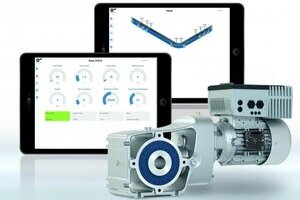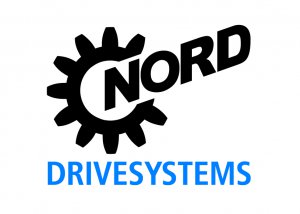Digitalisation in drive technology: Customer added value from drive data

Predictive maintenance is the systematic continuation of condition maintenance with the aim of proactively maintaining machinery and equipment and detecting changes, reducing downtimes and increasing the efficiency of the entire plant. A status-oriented maintenance replaces the traditional time-based maintenance.
Especially for drive systems in demanding production environments where industrial gear unit installations are usually used in sensitive applications and their failure can cause severe damage, for example in intralogistics, the food industry or the heavy duty sector, condition monitoring supplements the triad of gear unit, electric motor and frequency inverter with improved safety and reliability.
This is where condition monitoring for predictive maintenance comes into play. Based on intelligent algorithms and software in an IIoT environment, the networked drive units can collect their condition data in the inverter’s own PLC and pre-process it together with data of connected sensors and actuators. The result of the pre-processing or the complete data can be optionally transmitted to an edge device. There, data of all subsystems is managed and evaluated. It is then available as pre-selected and edited smart data for further use and clear visualisation.
Data analysis instead of just data reading

A concrete application example is the sensorless determination of the optimum oil change time based on the oil temperature. This is based on the fact that the oil temperature is a key factor for oil ageing in gear units. This information in combination with available gear unit parameters and specific operational parameters make it possible to precisely calculate the oil change time.
A physical temperature sensor is not required. The pre-processing of drive data takes place in the NORD frequency inverter’s integrated PLC that is used as an evaluation unit. The customer can access the calculated data via all common interfaces.
The right PLC software architecture for each solution
The drive equipment can be optionally extended and adjusted to the respective automation task. Customers can select what tasks (drive monitoring, drive control, process control) they want to directly shift into the drive. In smaller production areas, this scalability offers the possibility to gain first experiences before reorganising the plant.
There are three configuration levels available. At the first level, the drive unit PLC only performs the drive monitoring. The drive parameters are pre-processed in the PLC and communicated to the higher level control system that is responsible for drive and process control. At the medium level, the PLC integrates the drive control and also runs drive-related functions. At the higher configuration level, the inverter PLC completely replaces the higher level control system. Apart from the communication to a control unit, a local data management without internet connection can optionally apply the data.
Comment on this article below or via Twitter @IoTGN
